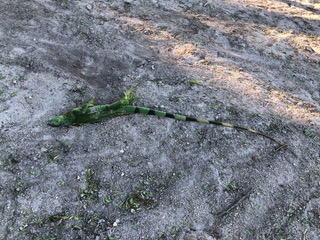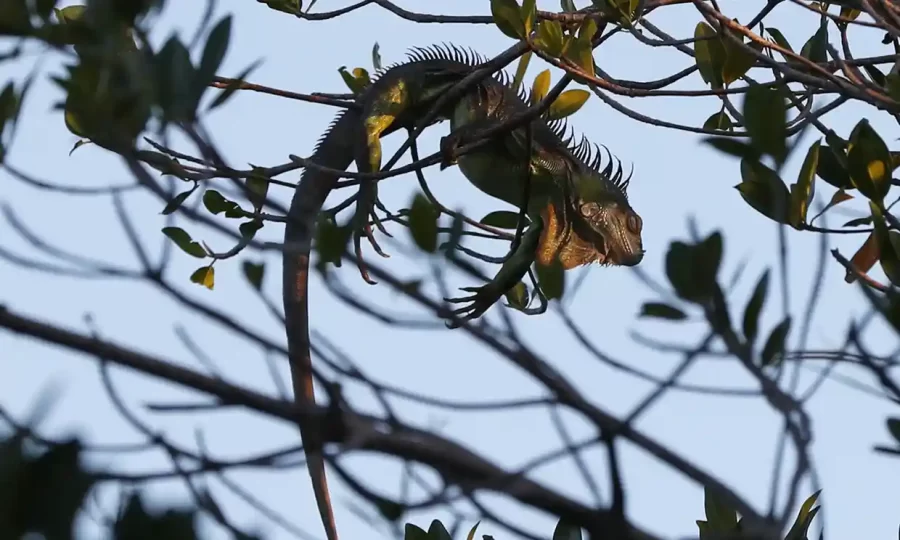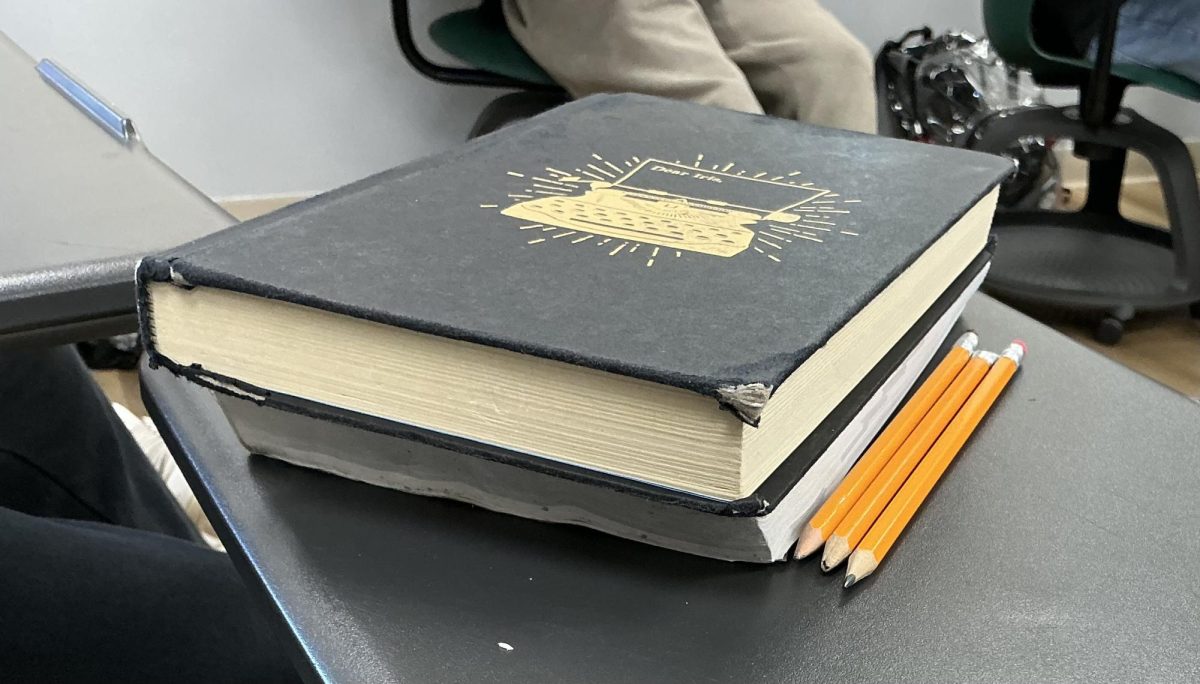As Temperature Drops, So Do Frozen Iguanas
February 2, 2022
South Florida, the place of hot summers and sandy beaches… and apparently 40-degree weather. Last Sunday, dropped to the 40s (4-9 celsius) as the highest it reached was around the 50s and 60s. This prompted the US weather service to give Floridians a warning about cold-stunned iguanas dropping out of trees.
“Iguanas are cold-blooded. They slow down or become immobile when temps drop into the 40s [4-9 Celsius],” the US National Weather Service Miami-South Florida said on Twitter on Sunday. “They may fall from trees, but they are not dead.”

Due to their immobility, Iguanas aren’t able to hang onto the tree branches they are sleeping on and fall down. It is important to know that green iguanas are not native to Florida according to the Florida Fish and Wildlife Conservation Commission.
Iguanas are an invasive species here in Florida that were accidentally brought through cargo ships. Due to their species needing to be near the Equator where it’s always warm, they are unable to withstand the cold below 45 degrees Fahrenheit. Surprisingly, this isn’t the first time the iguana population took a toll in Miami due to cold snaps; it happened back in 2010 and even in 2020 when the National Weather Service in Miami issued an unofficial warning to residents to look out for “falling iguanas.”
So what do we do? Well, the iguanas find ways to survive, like being cold-stunned (a kind of catatonic state)–a reminder that they aren’t technically dead– and adapt by going deep into burrows where they stay insulated from the cold. They tend to also live close to large bodies of water, which tend to be warmer than the air temperatures, which help them survive short cold snaps.
So all we can do is watch out for “A Chance of Falling Iguanas” and trust me..the umbrella will be no help. Look out!
















